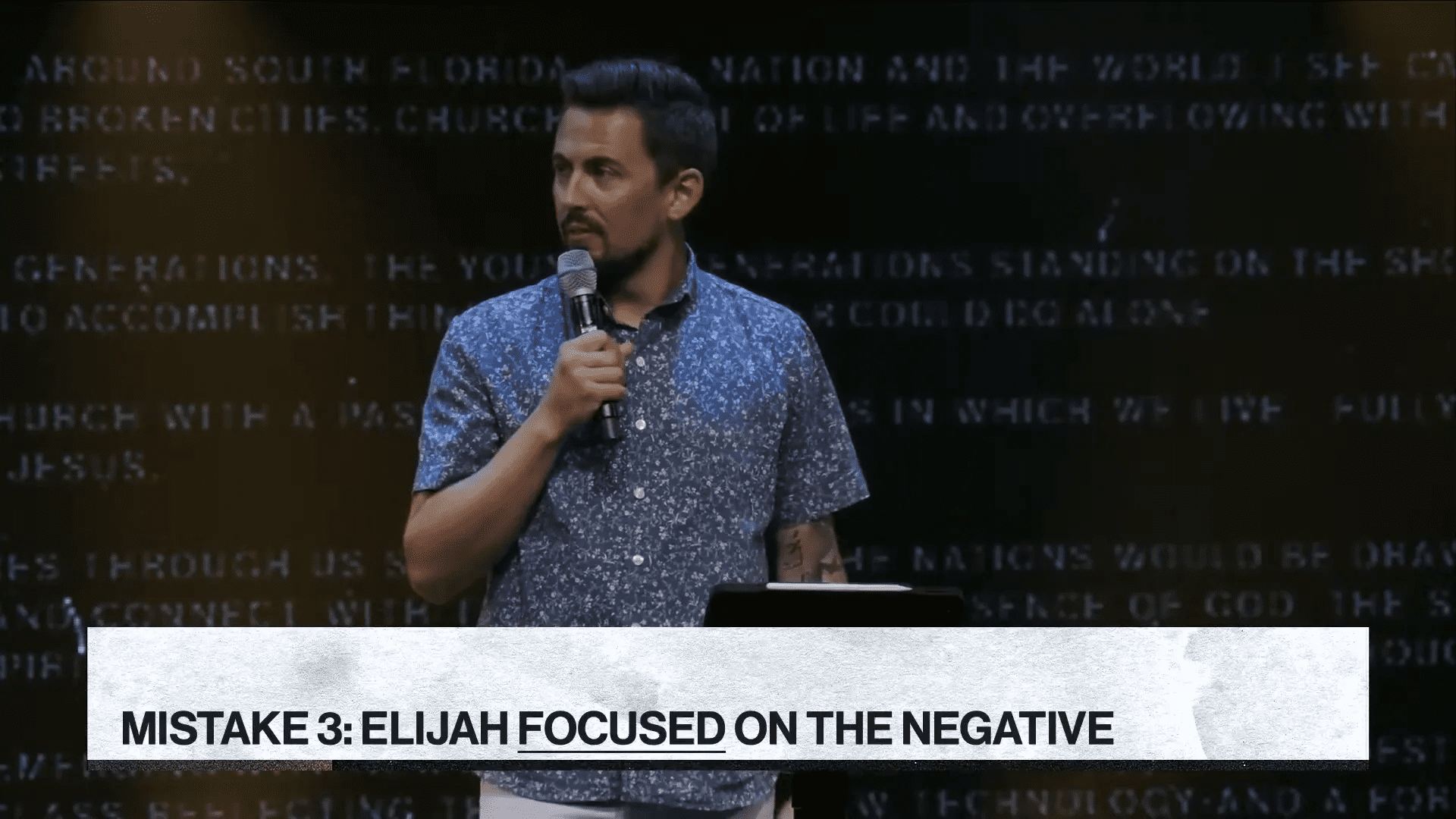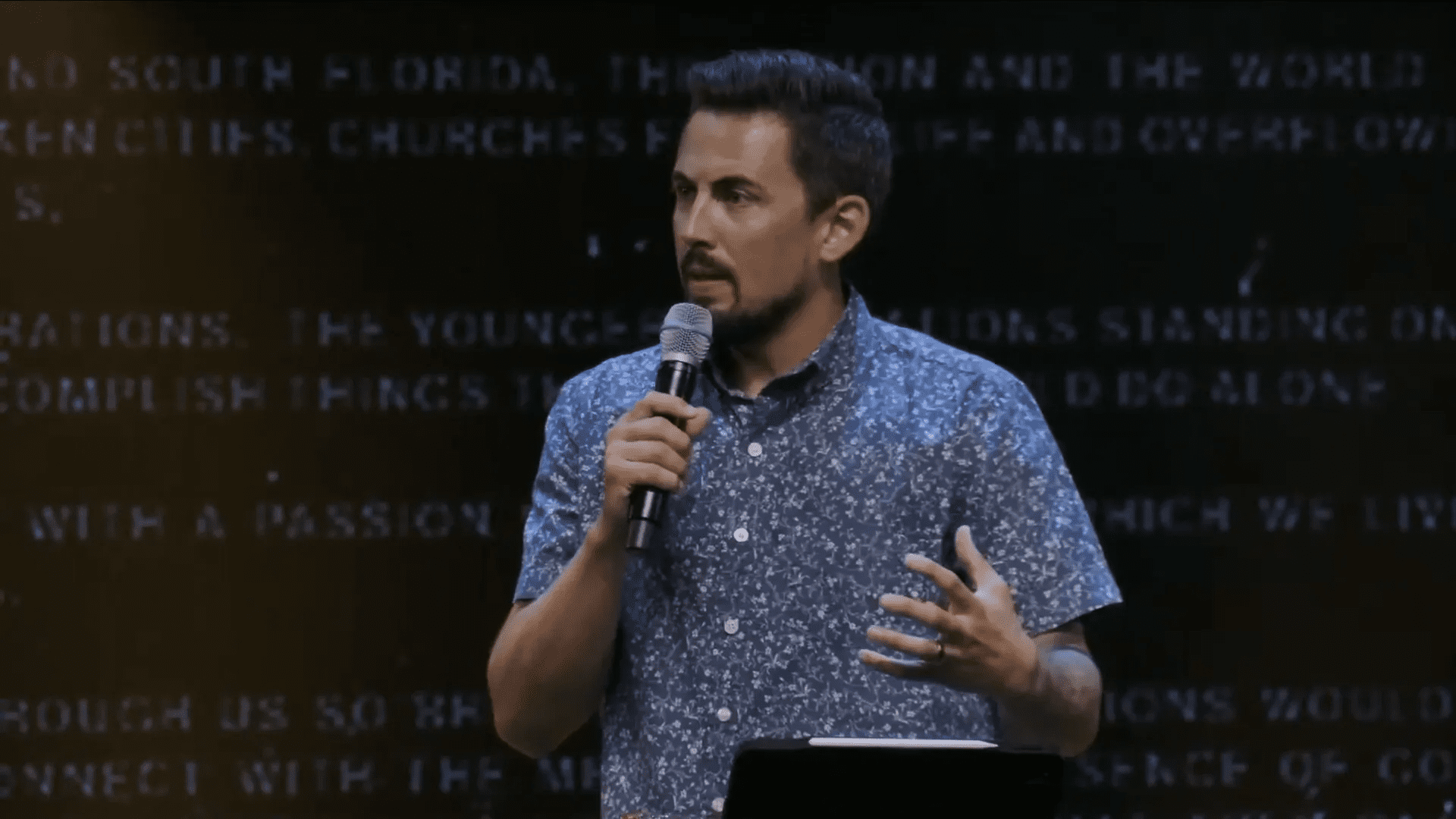The Church That I See… | Week 3 | Pastor Mike Stephens
The Final Straw: Overcoming Anxiety Through Community and Faith
In this powerful message, Pastor Mike Stephens explores the significance of clear vision within the church and how it relates to our struggles with anxiety and stress. He draws parallels between the biblical figure Elijah and our modern-day experiences, emphasizing the importance of community and leaning toward God during challenging times.
Introduction to the Series
The church is vital to our lives, offering a sense of community and belonging. This series delves into the vision that guides us, exploring how it shapes our interactions and faith journeys. We aim to understand the significance of having a clear vision for our church and our individual lives. This clarity helps us tackle life’s challenges more effectively, fostering resilience and unity among us.

Understanding Clear Vision
Clear vision is essential in navigating life’s uncertainties. It allows us to focus on our goals and aspirations while providing direction, especially during tough times. Without a clear vision, we may find ourselves lost, borrowing ideas and motivations from others instead of discovering our unique path.
The importance of having a well-defined vision cannot be overstated. It empowers us to make informed decisions and encourages us to remain steadfast in our faith. A community united by a shared vision can uplift each other, providing support and encouragement when needed most.

The Concept of the Final Straw
The phrase “the final straw” resonates deeply with many of us. It signifies that moment when we feel overwhelmed as if we cannot carry any more weight. Understanding this concept helps us identify the cumulative nature of stress and anxiety. Often, it’s not a single event but a series of small burdens that lead us to a breaking point.
Recognizing the “final straw” in our lives can be pivotal. It signals the need for change, prompting us to seek support from our community and our faith. This awareness can also encourage us to offload some of our burdens, reminding us that we are not alone in our struggles.

Acknowledging Life’s Challenges
Life is inherently challenging, filled with ups and downs that can leave us feeling defeated. Acknowledging these challenges is the first step towards healing. It’s crucial to be honest about our struggles, as pretending everything is fine can lead to further isolation and anxiety.
When we openly discuss our difficulties, we create a space for others to share their experiences. This exchange fosters a deeper connection within our community and reminds us that we are all human, navigating similar trials and tribulations.

The Reality of Anxiety
Anxiety is a common experience that many people face, often in silence. It can stem from various sources, including work pressures, personal relationships, and financial concerns. Recognizing that anxiety is a shared experience can alleviate feelings of guilt or shame associated with it.
Understanding the reality of anxiety allows us to approach it with compassion, both for ourselves and for others. It’s vital to remember that feeling anxious does not equate to a lack of faith. Instead, it reflects our humanity and the complexities of life.

Elijah’s Story: A Profound Example
Elijah’s journey serves as a powerful illustration of overcoming anxiety and stress. He faced immense challenges, yet his unwavering faith in God guided him through. Elijah confronted kings and false prophets, showcasing his bravery and commitment to his beliefs. However, even he experienced moments of doubt and fear.
Elijah’s story reminds us that even the strongest among us can struggle. His experiences encourage us to lean on our faith and community during our darkest hours, providing a blueprint for navigating our trials.

Elijah’s Mountaintop Moments
Elijah had several mountaintop moments during which he witnessed God’s miraculous power. These experiences filled him with confidence and strength. However, they were often followed by profound challenges that tested his faith and resilience.
These contrasting moments reflect our own lives, where we may feel uplifted one day and overwhelmed the next. Embracing both the highs and lows allows us to appreciate our journey and recognize the growth that comes from overcoming adversity.

Jezebel’s Threat and Elijah’s Breakdown
After experiencing God’s miraculous power, Elijah faces a daunting challenge. Jezebel, the wife of King Ahab, threatens his life, declaring that she will eliminate him if Ahab does not. This moment marks a significant turning point for Elijah, as his confidence crumbles. Despite having confronted kings and false prophets with unwavering faith, the fear and anxiety from Jezebel’s threat overwhelm him.
Elijah’s breakdown reveals a common human experience: the inability to cope with pressure after a series of victories. Instead of standing firm, he succumbs to fear, illustrating how quickly anxiety can disrupt our lives. This moment serves as a reminder that even those with strong faith can falter under pressure.

Learning from Elijah’s Mistakes
Elijah’s response to his circumstances provides valuable lessons on handling anxiety and fear. By examining his mistakes, we can better understand how to navigate our struggles. Here are four critical mistakes Elijah made, along with corrections we can apply to our lives.
Mistake #1: Running Away
Elijah’s first mistake was running away from his problems. When faced with fear, he fled into the wilderness, leaving his servant behind. This flight was not just a physical escape; it symbolized his emotional retreat from the challenges he faced.
Instead of confronting his anxiety, he chose to distance himself from the situation. The correction here is to lean toward your anxiety. Embrace your fears and confront them head-on. Acknowledging our feelings allows us to process them rather than allowing them to control us. As Jeremiah 17:7 reminds us, blessed is the one who trusts in the Lord.

Mistake #2: Isolating Himself
The second mistake Elijah made was isolating himself. By leaving his servant behind, he cut himself off from support at a time when he needed it most. Isolation can amplify feelings of loneliness and despair, making it harder to cope with anxiety.
The correction is to lean toward your friends. Surround yourself with supportive, godly individuals who can encourage you during difficult times. Being part of a community is essential for overcoming challenges. Engage with your church family and build relationships that provide strength and support.

Mistake #3: Focusing on the Negative
Elijah’s third mistake was focusing on the negative aspects of his situation. Despite his past victories, he allowed despair to cloud his judgment, declaring that he was no better than his ancestors. This negative self-talk only deepened his anxiety and hopelessness.
The correction here is to lean toward the truth. When feeling overwhelmed, remind yourself of past victories and God’s faithfulness. Documenting your experiences through journaling can help you reflect on God’s presence in your life, especially during challenging times.

Mistake #4: Forgetting God
Lastly, Elijah forgot God in his moment of crisis. He became so consumed by his problems that he overlooked the many times God had been faithful to him. This forgetfulness led him deeper into despair, distancing him from the source of his strength.
The correction is to lean toward the Father. In moments of anxiety, turn your focus back to God. Remember His promises and the ways He has provided for you. Lean into prayer, scripture, and worship to reconnect with your source of strength and peace.

Conclusion
Elijah’s journey from a mountaintop experience to a valley of despair teaches us valuable lessons about handling our fears and anxieties. By acknowledging our mistakes and making conscious corrections, we can navigate our challenges with faith and resilience.
As we lean into our anxieties, surround ourselves with supportive friends, focus on the truth, and remember God’s faithfulness, we can overcome the overwhelming feelings that life may throw our way. Take these lessons seriously and move forward with renewed strength and hope.
